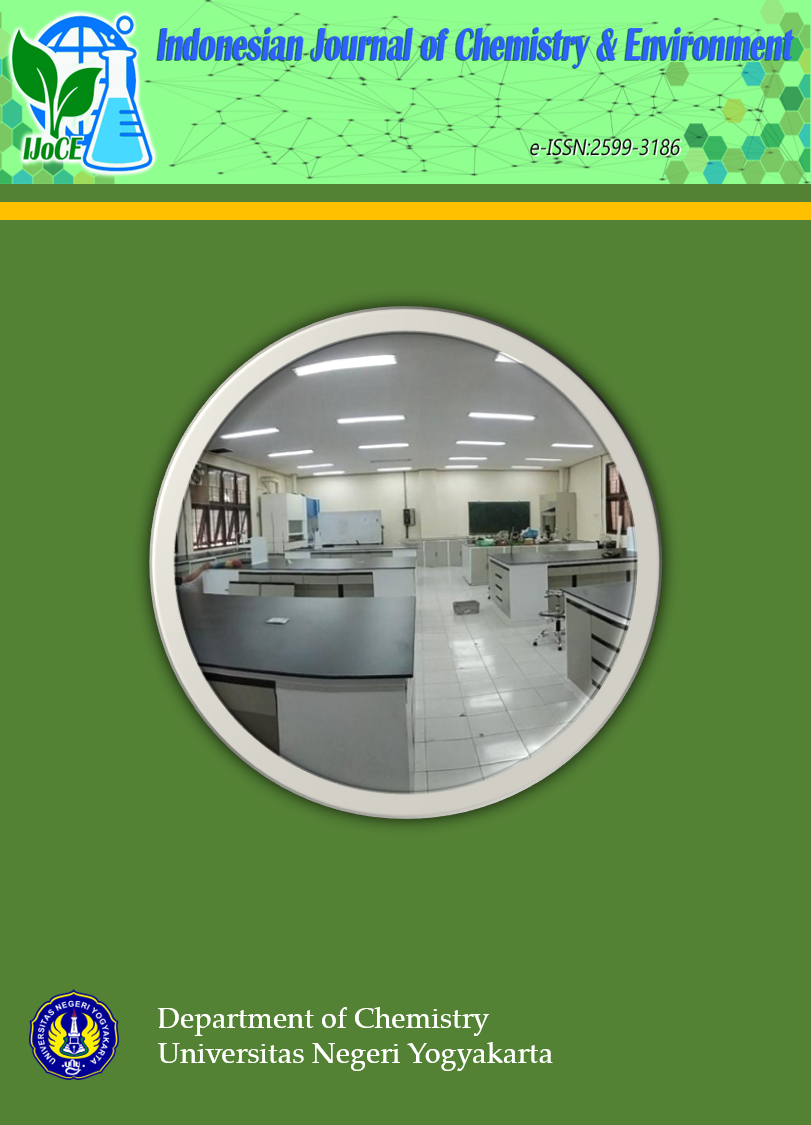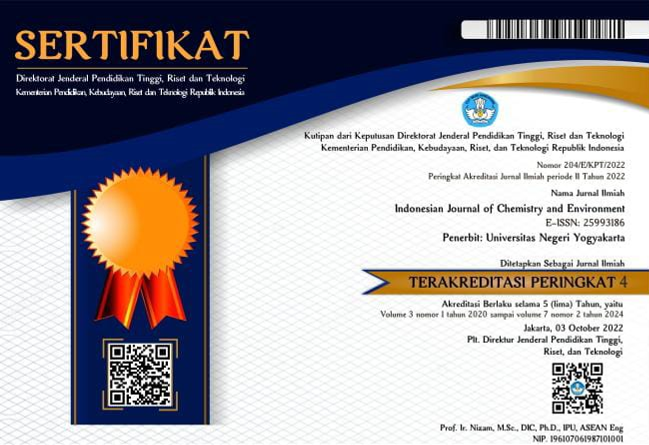Determination of Free Fatty Acid in Frying Oils of Various Foodstuffs
DOI:
https://doi.org/10.21831/ijce.v2i1.30288Abstract
Cooking oil is one of the basic human needs as food processing media. Repeated use of cooking oil by heating at high temperature will produce free fatty acid levels. This study aim to determine the levels of free fatty acids in frying oils of various foodstuffs which were chicken, catfish, and flour with acid base titration method. The study population was frying oils of various foodstuffs of 0 up to 5th. The results of fatty acid levels in the repeated use of chiken (sample A), catfish (sample B) and flour foodstuffs shows the fatty acid levels exceed safe limits set by SNI 7709:2012. The fatty acid levels of the oil before it used was 0.24%. The increase of free fatty acid was influeced by how many the coocing oil used to frying. The highest level of fatty acid in coocing oil was reached after the fifth of friying. It happened because the level water in foodstuffs increase due to the used of coocing oil
Downloads
Published
2020-02-21
How to Cite
[1]
Febrianto, F. et al. 2020. Determination of Free Fatty Acid in Frying Oils of Various Foodstuffs. Indonesian Journal of Chemistry and Environment. 2, 1 (Feb. 2020), 1–6. DOI:https://doi.org/10.21831/ijce.v2i1.30288.
Issue
Section
Articles
Citation Check
License
Authors who publish with this journal agree to the following terms:
- Authors retain copyright under a Creative Commons Attribution–ShareAlike License (CC BY SA) that allows others to share: copy, and redistribute the material in any medium or format, Adapt: remix, transform, and build upon the material, for any purpose, even commercially.
- Authors are able to enter into separate, additional contractual arrangements for the non-exclusive distribution of the journal's published version of the work (e.g., post it to an institutional repository or publish it in a book), with an acknowledgement of its initial publication in this journal.
- Authors are permitted and encouraged to post their work online (e.g., in institutional repositories or on their website) prior to and during the submission process, as it can lead to productive exchanges, as well as earlier and greater citation of published work.










